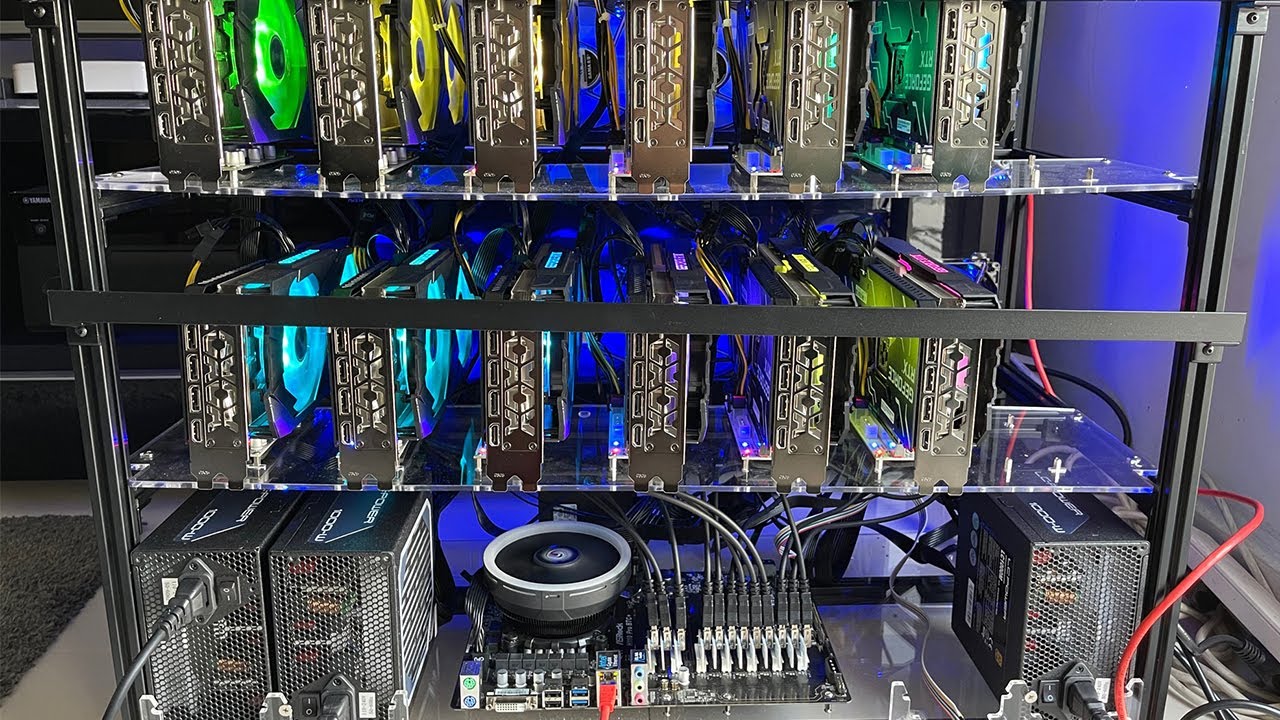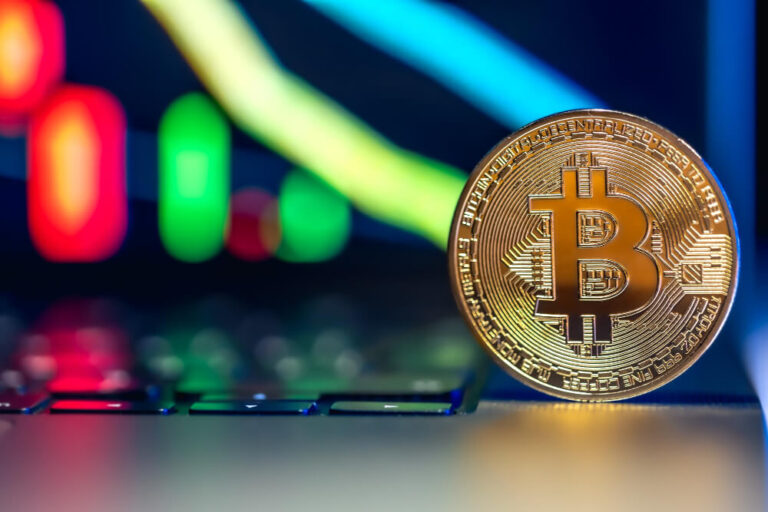Want to know how to build a bitcoin mining rig from scratch? Here is a complete step-by-step guide to building your own cryptocurrency mining rig.
What is a Crypto Mining Rig?
By now you should probably read our guide on How Does Bitcoin Mining Work? Yet, before we move to the building process, let’s see what the mining rig is.
A bitcoin mining rig is basically a computer system that is designed for mining cryptocurrencies like Bitcoin and Ethereum. It has a powerful processor, lots of RAM (Random Access Memory) space, GPU (Graphics Processing Unit), storage space, and other hardware components.
The main purpose of a mining rig, that uses specialized hardware, is to solve complex mathematical problems in order to confirm transactions for the blockchain network. The crypto miners get rewarded with bitcoins when they do this work.
So, a bitcoin mining rig is a hardware responsible for adding new coins into the existing circulating supply of a cryptocurrency.
What Do I Need to Build a BitcoinMining Rig?
In order to build your own cryptocurrency mining rig, you will need: RAM, motherboard, CPU, storage and power supply (PSU). It also requires a powerful GPU or ASIC unit in order to perform mining successfully.
Now, except for these basic elements, there are also some other mining-specific items needed to make the rig ready for mining.
Building a Bitcoin Mining Rig: Here Is What You Will Need

GPU
Graphics Processing Unit (GPU) stands for Graphics Processing Unit, a specialized processor originally developed to accelerate graphics rendering. GPUs can process many pieces of data at the same time, which makes them ideal for video editing, gaming and, lately, the crypto mining process.
GPU is of crucial importance for the mining rigs, since they generate the profits. Even though you can start the process with just one, it is recommended to use multiple GPUs on a single motherboard for a more effective performance.
Here is a short list of some GPUs which are a solid option performance wise and are also affordable in terms of price: https://www.windowscentral.com/best-gpus-crypto-mining
- NVIDIA GeForce RTX 3060 Ti— Best overall: 60MH/s, 200W TDP, 8GB GDDR6 VRAM, $399 MSRP.
- AMD Radeon RX 5700 XT— Runner-up: 54MH/s, 225W TDP, 8GB GDDR6 VRAM, $399 MSRP.
- NVIDIA GeForce RTX 2070— Best value: 36MH/s, 225W TDP, 8GB GDDR6 VRAM, $499 MSRP.
- NVIDIA GeForce RTX 3090— Best performance: 121MH/s, 350W TDP, 24GB GDDR6X VRAM, $1,499 MSRP.
- AMD Radeon RX 580— Best budget AMD: 28MH/s, 185W TDP, 8GB GDDR5 VRAM, $229 MSRP.
- NVIDIA GeForce GTX 1660 SUPER— Best budget NVIDIA: 26MH/s, 125W TDP, 6GB GDDR6 VRAM, $229 MSRP.
Motherboard
When choosing a motherboard bear in mind it should connect at least six GPUs. The more GPUs it can accommodate, the better, but along the number of GPUs increases the price of the motherboard as well.
For some serious block busting power, ASUS B250 Mining Expert (note: it needs a specific layout of AMD and Nvidia graphics cards) would be an ideal fit, but also other ASUS models would do fine.
The price for this motherboard is not as affordable, but there are also other options like Monland B250C BTC Mining Motherboard, which is also less powerful, but still performs mining successfully.
If this sounds like Chinese, you can try to get more insight from our go-to IT support in Los Angeles. We have always received great insights and help.
CPU
When it comes to the CPU, there are two possibilities:
- you can either mine only with it, or
- it could be used as an additional element with the GPU.
The first case is not the best option if you want to engage in intensive crypto mining, because the CPU was outdated a few years ago for it is no longer strong and fast enough to compete with the GPU or ASIC units.
However, if you do decide to take such a step, then a high-end CPU is recommended.
An important note: overloaded CPUs lead to rapid warm-up, so in case you decide to work with a more powerful model like the AMD Ryzen Threadripper 3990X or AMD Ryzen 7 3700 X, make sure you provide a good cooling system first.
You can reduce the costs of building the mining rig by selecting a low-end CPU (e.g. INTEL Core i5-6500).
RAM
Random Access Memory is not as important constituent of our mining rig, but is a required part nonetheless. The motherboard supports DDR4 2400, and the 2x8GB kit from G.SKILL is not expensive at all plus does the job.
You should use minimum DDR4 8GB to 16GB memory stick and Windows should have at least 8 GB for an effective mining operation.
ASIC
ASIC is a powerful computing machine build with only one purpose: to mine cryptocurrency. Thanks to their power, they lead in their ability to generate hashes (e.g. WhatsMinerASIC, which boasts 33THs hashrate), but are also extremely expensive.
Though you should also bear in mind that high hash rates mean high demand for power, which also leads to higher costs. Taking all this into consideration, they were quickly replaced with the newer and cheaper models.
PSU
Power supply is definitely something you should invest your money in if you are seriously into getting the best bitcoin mining equipment.
The PSU has at least three groups of power connectors, each group for a different unit: PCI (power), GPU and CPU which shouldn’t be mixed.
It should have at least 80 Plus Gold certification, but the higher, the better. So there is no efficient mining if not all of your components are supplied with power, which means PSU plays an important role in gaining profit.
Not to forget though, stronger power supply and overall high yielding mining rig components also mean a higher cost of electricity. While it’s good to have the best computing power possible for your cryptocurrency mining rig, utility bills will add up.
Depending on how many graphics cards you have installed, you may need multiple PSUs. Segotep PSUs and Thermaltake Toughpower 1500W are a cheaper solution but offer reliable performance and EVGA Supernova 1600 T2 boasts an 80+ Titanium efficiency rating and is recommended for serious cryptocurrency miners.
These are the main steps you need to take, if you are serious in building your cryptocurrency mining rig. Had any success? Let us know in the comments below.




